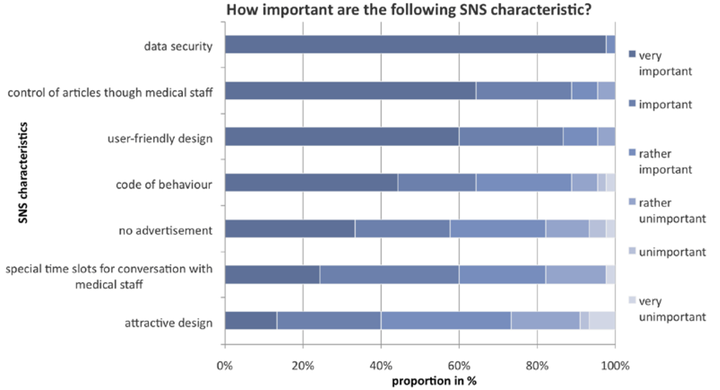Social media for the ehealth context. A requirement assessment

Abstract
There were 940 million social network users in 2010 in the world (Belleghem Van 2011). This fact makes social network sites (SNS) an integral part of the Internet. Knowing that health affairs are a central topic in the Internet makes this issue into an addressee for SNS. So-called health social network sites promise to be beneficial by lining up with the success of SNS like Facebook. Due to the fact that many promising technical approaches fail at the market, because of a lack of user acceptance we started an exploratory study to find out criteria for a successful health social network approach, improving health promotion. Being aware that health and health related information reveal special acceptance patterns, especially when provided via Internet, we wanted to define user-centered design criteria and acceptance requirements for a health SNS. Central findings show that neither age, gender, field of work nor private social media usage impact willingness to disclose personal health related information. Health related SNS are generally perceived positively (77%) but are more likely to be used as a source for professional information. Key issues like data security create a gap between willingness to share and willingness to consume information. Recommending a health SNS could only work if done by personal friends or the private physician. Commercial advertising or insurance company recommendations are rather distrusted.